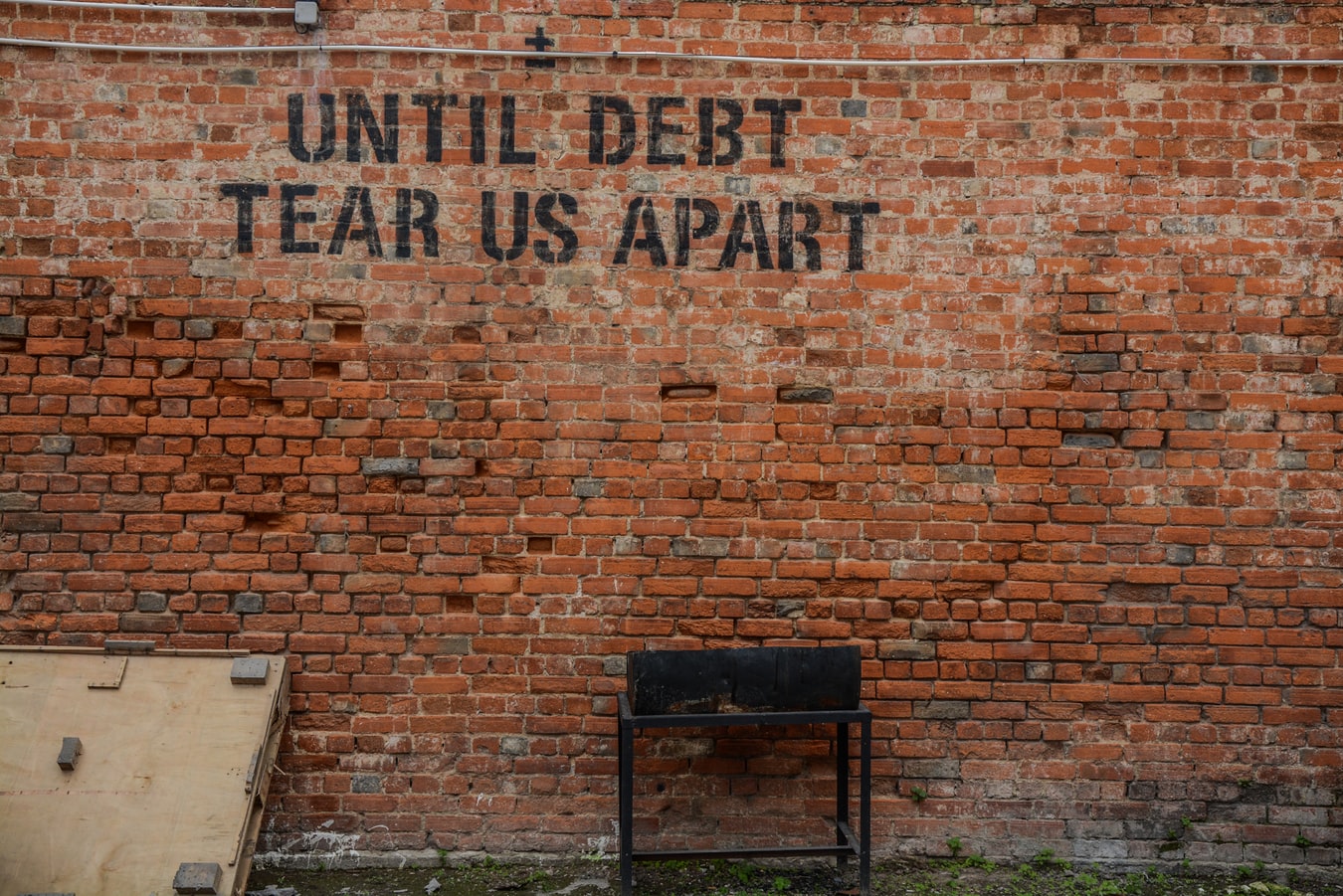Are you being harassed by DCBL bailiffs? Are they threatening to take your property or possessions away from you? If so, don’t panic. You have rights, and there are steps that you can take to stop them in their tracks. In this article, we will look at how DCBL bailiffs operate and individuals’ legal rights when dealing with them. We’ll offer tips on self-protection and how Credibble can negotiate with DCBL, finding your optimal debt solution. So if you’re feeling overwhelmed by the prospect of dealing with DCBL bailiffs, read on for some helpful advice.
What's Included?
What does DCBL mean?
DCBL stands for Direct Collection Bailiffs Limited.
Who are DCBL?
DCBL, a UK debt collection agency, is known for their aggressive approach to debt collection. DCBL bailiffs possess far-reaching and intimidating powers that instil stress and anxiety in individuals. DCBL operates in the following industries: commercial, utility, legal, public sector, and private sector. They specialise in debt recovery, commercial rent arrears recovery, and enforcement services, including property repossession. DCBL has over 150 staff, including authorised High Court enforcement officers, accredited bailiffs and investigators.
Is DCBL Bailiffs legit?
Under the Taking Control of Goods Regulations 2013, DCBL has been granted legit powers as a debt collection agency. This allows them to actively aid in debt collection procedures. They employ authorised officers, bailiffs, and investigators to recover debts from individuals in England and Wales. However, there have been reports of DCBL bailiffs taking advantage of their power and authority to intimidate individuals in debt. Therefore it is important to be aware of your legal rights when dealing with them to protect yourself from unfair practices.
Who owns Direct Collection Bailiffs Ltd?
Brothers Gary and Conaill Joyce founded Direct Collection Bailiffs Ltd, a private company, in 2005. It has swiftly become one of the UK’s premier enforcement agencies, specializing in debt and rent arrears recovery.
In 2014, DCBL received an investment from a private equity firm, Cairngorm Capital Partners LLP. The investment has allowed DCBL to expand its business. Today, the Joyce brothers and Cairngorm Capital Partners LLP own DCBL. The company has continued to grow.
Why is DCBL contacting me?
DCBL may contact you because you owe money to a creditor, such as a business or utility company. Debt collectors can legally retrieve unpaid debt for clients through phone, mail, email or bailiff visits. If our repayment methods are unsuccessful, DCBL may repossess your property or seize goods for public auction. If DCBL contacts you regarding any outstanding debts, it’s important that you understand your rights and take appropriate action.
How can Credibble help me?
Dealing with debt can be overwhelming, especially when debt collectors or bailiffs are involved. Don’t panic! The Credibble Team is here to help. We can help you to stop proceedings and reduce the cost of your debt for free.
We offer a unique debt solution service partnered with Equifax, a world leader providing consumer credit report data. This means we have instant access to all your major debt without you searching through the paperwork. Furthermore, we’re supported by the Natwest Accelerator Programme for business and have a multiyear relationship with the organisation. Our extensive and unique personal finance knowledge goes far beyond debt solutions – so you can trust that you are in safe hands.
Who does DCBL collect for?
DCBL collects debts for many clients, including businesses, utility companies, and individuals. Some industries they operate in include commercial, legal, public, and private sectors. DCBL may collect debts for manufacturing, construction, retail, and hospitality companies in the commercial sector. They may also collect debts on behalf of utility companies, such as gas, water, and electricity providers.
DCBL may also work with individuals owed money by others, such as landlords owed rent by tenants. In these cases, DCBL may use their expertise in commercial rent arrears recovery to help its clients obtain the money they are owed. DCBL’s clients may range from small business owners to large corporations, and their debts can range from a few hundred pounds to thousands or even millions of pounds.
Do bailiffs send letters first?
When it comes to debt collection, many people wonder if bailiffs send letters first or if they just show up unannounced. The truth is that bailiffs, including those from DCBL, are required by law to send notices before taking any action.
Under the Taking Control of Goods Regulations 2013, bailiffs must send a Notice of Enforcement at least seven days before their first visit. This notice must include details about the debt, the amount owed, and the bailiff’s actions if payment is not made. The notice also provides information about the debtor’s legal rights, including making a payment arrangement and applying for a warrant suspension.
If the debtor does not respond to the Notice of Enforcement or fails to make a payment arrangement, the bailiff may visit the premises to collect payment or seize goods. However, they must still provide another notice, known as a Control Goods Agreement, before taking any goods.
You must give the Control Goods Agreement at least two days before you remove any goods. It must have information about what will be taken, the debt amount, and the fees the debtor must pay. The agreement also provides information about the debtor’s right to appeal the seizure of goods.
Can DCBL Bailiffs Force Entry into My Property?
Regarding debt collection, one of the biggest concerns for individuals is whether bailiffs can force entry into their properties. The short answer is, in most cases, they cannot. However, there are still several factors to consider.
It’s important to remember that DCBL bailiffs have limited powers compared to other enforcement agents. For example, without a court order, they cannot break in or force their way into your property.
As mentioned in the previous section, DCBL bailiffs must provide a Notice of Enforcement at least seven days before their first visit. This notice includes details about the debt, the amount owed, and the actions the bailiff may take if payment is not made.
In addition, you can take steps to protect yourself from DCBL bailiff visits altogether. By seeking professional advice from a debt advisor or negotiating with DCBL through Credibble, you can find a debt solution that works for you and avoid the stress and anxiety of bailiff visits altogether.
How many visits can bailiffs make to my property?
The number of visits they can make isn’t fixed. Instead, it depends on the circumstances around your debt.
However, it’s important to note that bailiffs are regulated by law and must follow strict guidelines when recovering debt. This means they cannot simply show up at your door and demand payment without giving you notice and providing information about your rights.
In most cases, bailiffs will make multiple visits to your property to try to collect payment. It’s worth noting that bailiffs from DCBL have limited powers compared to other enforcement agents. They cannot break in or force their way into your property without a court order, and they cannot take goods that do not belong to you.
What property can a bailiff take?
DCBL bailiffs have some authority to take possessions as payment, although less so than other agents.
So, what kind of property can a bailiff take?
Essentially, bailiffs can take any non-essential items belonging to the individual or business that is in debt. This includes furniture, electrical equipment, jewellery, and vehicles.
There are certain possessions that bailiffs are forbidden from taking. These include essential household items like clothing, bedding, and kitchen utensils. In addition, bailiffs cannot take items that do not belong to the individual in debt. If an individual owns a car jointly with someone else, the bailiff is not authorised to seize it. It’s worth noting that bailiffs will often take an inventory of the possessions in question before removing them. This ensures they take the correct items and are worth enough to cover the debt owed.
What rights do I have if DCBL is chasing me?
If DCBL chases you for a debt, you have the right to know the amount owed, goods that can be seized, and associated fees for debt collection. You have the right to clear information about appealing against the seizure of your goods.
You can challenge a debt if it is not yours or has been paid off. DCBL bailiffs cannot break into your property without a court order – it’s illegal. If you’re struggling with finances, Credibble offers debt advice and solutions to avoid bailiff visits.
Click here to see how other people in debt rate DCBL.
Frequently Asked Questions about DCBL
How can I write off my debts?
One option is to enter into an Individual Voluntary Arrangement (IVA). An IVA is a legally binding agreement between you and your creditors to pay back what you can afford over a fixed period of time, typically five or six years. Any remaining debts are written off at the end of this period, allowing you to start fresh.
Another option is to declare bankruptcy. This last resort option should only be considered if all other options have been exhausted. Bankruptcy involves the formal declaration that you cannot pay your debts, which will liquidate any assets you own. However, once the bankruptcy period is over (typically one year), your remaining debts will be written off.
If you have a relatively small debt, you can write it off using a Debt Relief Order (DRO). This form of insolvency is aimed at those with little or no disposable income and limited assets. Your debts are typically written off after 12 months, allowing you to start fresh.
It’s important to note that there are eligibility criteria for each of these debt solutions, and it’s important to seek professional advice to determine which option is best for you.
At Credibble, we can help you navigate the complex world of debt and find the best solution for your circumstances. Our team of debt advisors can negotiate with creditors on your behalf and help you write off your debts. Additionally, our partnership with Equifax allows us to access your credit report instantly, making it easier to help you find the best solution. Don’t let debts control your life. Contact Credibble today and let us help you regain control of your finances.
Where are DCBL’s offices?
DCBL debt recovery provides services from five locations across the UK, with full contact information as follows:
- THE NORTH WEST : Direct House Greenwood Drive Manor Park Runcorn Cheshire WA7 1UG
- SCOTLAND Barn Cliuth Business Centre Town Head Street Hamilton ML3 7DP
- LONDON: Solar House, 915 High Road, North Finchley London N12 8QJ
- MIDLANDS: Colmore Plaza 20 Colmore Circus Queensway Birmingham B4 6AT
WALES: Sophia House 28 Cathedral Road Cardiff CF11 9LJ Wales.
How can I contact DCBL Bailiffs?
If you need DCBL’s debt collection services, their primary contact number is 0203 434 0423. Their website can be found at https://dcbltd.com/. Meanwhile, depending on which region you are located in, the specific contact details for calls vary:
• North West 01606 608 267
• Scotland 0141 326 0016
• London 0203 613 0151
• Midlands 0121 581 0076
• Wales 0292 235 0137 Unfortunately, for debtor inquiries, DCBL does not provide an email address to reach out through – only a general contact form and sales@DFMSltd.com if a company needs their services such as debt collection or security solutions.
How can I pay DCBL bailiffs?
DCBL offers an online payment portal accessible with your customer reference number and postcode. You can make payments quickly and conveniently via credit or debit card, and the company also allows for a conversation about repayment plans or settlement options over the phone.
What if I have complaints about DCBL bailiffs?
Despite operating legally and providing a necessary service, DCBL bailiffs can be a major source of stress and anxiety for individuals. Their power and authority are far-reaching and intimidating, and their actions can often feel like a violation of personal space and privacy. Unfortunately, despite the legal framework that governs their actions, there are times when DCBL bailiffs overstep their boundaries or simply act unprofessionally, leading to complaints from mistreated or unfairly targeted individuals.
If you have a complaint about DCBL, it’s important to know that there are steps you can take to seek a resolution. The first step is to formally lodge your complaint with DCBL directly. You can contact their customer service team via email, phone, or post. You should provide as much detail as possible about the situation, including specific dates, times, and details of the bailiffs involved. This will help the company investigate the matter more thoroughly and respond to your complaint promptly and effectively.
What if I’m unhappy with DCBL’s response to my complaint?
If you are unsatisfied with DCBL’s response to your complaint, you can contact the bailiff regulator in your area for further investigation. Each region of the UK has its own local bailiff regulator: The Tribunals, Courts and Enforcement Act 2007 (TCE) provides guidance and oversight for debt collection activities in England & Wales; the Civil Law (Scotland) Act 1995 regulates bailiffs operating in Scotland; and Northern Ireland’s Department of Justice is responsible for regulating bailiffs there. In addition, if you feel that DCBL has acted unlawfully or inappropriately, you can take legal action against them through the civil court system. It is worth noting, however, that this process tends to be expensive and time-consuming, so it should be a last resort after all other options have been exhausted.
Where can I go for free debt information and advice?
The first port of call for free debt advice is often local charities and non-profit organizations such as Citizens Advice Bureau (CAB). CAB offers debt advice services face-to-face, over the phone, or online. They have specialist debt advisers who can help you assess your options and offer practical advice on dealing with debt.
Another organisation that offers free debt advice is StepChange. They provide impartial, personalized debt help completely free of charge. They can recommend debt solutions based on your individual circumstances and offer ongoing support throughout the debt management process.
National Debtline is another organisation that offers free debt advice. They provide various services, including debt advice over the phone and web chat. Their website also offers a variety of resources, including sample letters, budget planners, and factsheets to help you manage your finances.
If you are struggling with bailiffs, seek advice from a specialist organisation like Credibble. They can negotiate on your behalf with DCBL to reach a suitable debt resolution, such as an agreement to pay in affordable instalments. They can also advise you on your legal rights and help you contest any unlawfulness and unprofessionalism you might experience from DCBL bailiffs.
Can DCBL bailiffs take money straight out of my wages?
DCBL bailiffs are known for their wide-ranging power and authority regarding debt collection, but can they take money straight out of your wages? The short answer is yes, they can, but only after going through the proper legal channels.
If you owe money to a creditor and they obtain a CCJ (County Court Judgment) against you, this gives them the right to apply for an attachment of earnings order (AEO). An AEO is a court order that requires your employer to deduct a certain amount of money directly from your wages and pay it to your creditor until the debt is satisfied. DCBL bailiffs can act as the intermediary between the court and your employer to facilitate this process.
However, before DCBL can apply for an AEO, they must obtain a warrant of control from the court. This warrant gives them the authority to visit your home or business to seize goods that can be sold to repay your debt. If DCBL cannot recover the full amount of your debt by selling your goods or other means, they can apply for an AEO. It’s worth noting that there are restrictions on how much money can be taken from your wages through an AEO. The amount that can be deducted in England and Wales is based on a sliding scale of your earnings, with a maximum deduction rate of 40%. Additionally, if the amount taken would leave you with less than the minimum amount set by law for your basic living expenses, the AEO cannot be granted.
What is ‘reasonable force’?
One term often associated with DCBL bailiffs is “reasonable force”. This term refers to the amount of force that a bailiff is legally permitted to use when attempting to recover goods or money owed by an individual. While it is true that DCBL bailiffs have a wide range of powers when it comes to debt collection, these powers are not unlimited, and bailiffs must always act within the confines of the law.
Under UK law, bailiffs can use force when attempting to enter a property, but only if granted a warrant. This warrant must specify the amount of force deemed reasonable in the circumstances.
In practice, the use of force by bailiffs is extremely rare and is generally only employed in cases where the individual being pursued has acted aggressively or violently towards the bailiffs. Even in such circumstances, bailiffs are only permitted to use the minimum force necessary to protect themselves and gain entry to the property.
What services do DCBL bailiffs offer?
DCBL (Direct Collection Bailiffs Limited) is a debt collection agency that provides a wide range of services related to debt recovery. The company has been operating since 2009 and has grown to become one of the leading debt collection agencies in the UK.
DCBL offers various services to assist creditors in recovering debts, including tracing and investigation services, credit control, and legal services. The company also provides enforcement services, such as serving statutory demands, executing county court judgments, and arranging for the removal of assets.
One of DCBL’s main focuses is on property repossession. The company provides various services related to property repossession, including residential and commercial evictions and the recovery of rent arrears.
What is a County Court Judgment (CCJ)?
A County Court Judgment (CCJ) is a legal ruling that can be issued against an individual who has failed to repay a debt. They can be applied for by creditors through the courts in England and Wales if the individual owes them money and has failed to respond to previous attempts to recover the debt.
Once issued, it will be added to the individual’s credit record, which can impact their ability to obtain credit in the future. The CCJ specifies the amount of money owed and any additional fees and interest that may be due.
Moreover, it gives the creditor the right to pursue further enforcement action to recover the money owed. This can include seeking a warrant of control, which enables a bailiff to visit the individual to collect goods that can be sold to repay the debt.
Act swiftly after receiving one, as there are often opportunities to negotiate payment arrangements with the creditor before enforcement action is taken. In some cases, it may be possible to apply to have the CCJ “set aside” if there are errors or irregularities in the process, although this can be a complicated and costly process.
A CCJ is a serious legal ruling with significant financial and practical implications for individuals struggling to repay their debts. Seeking advice and support from debt advice charities or professional debt advisers can help mitigate the impact of a CCJ and find a sustainable debt solution.






